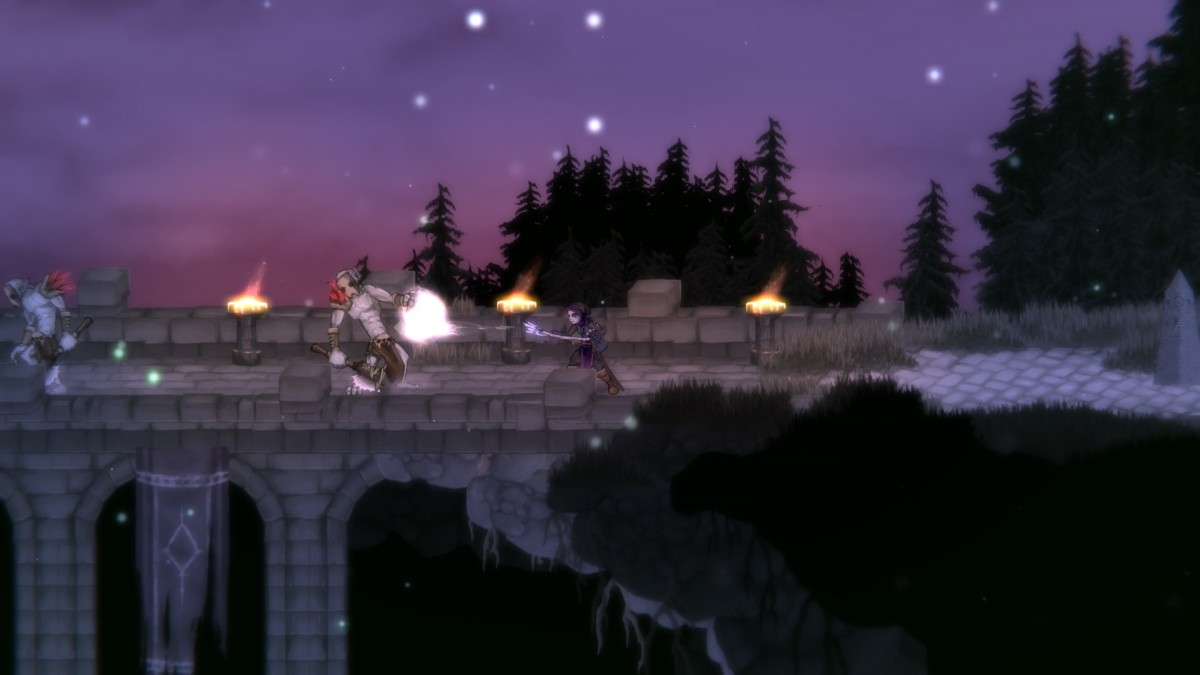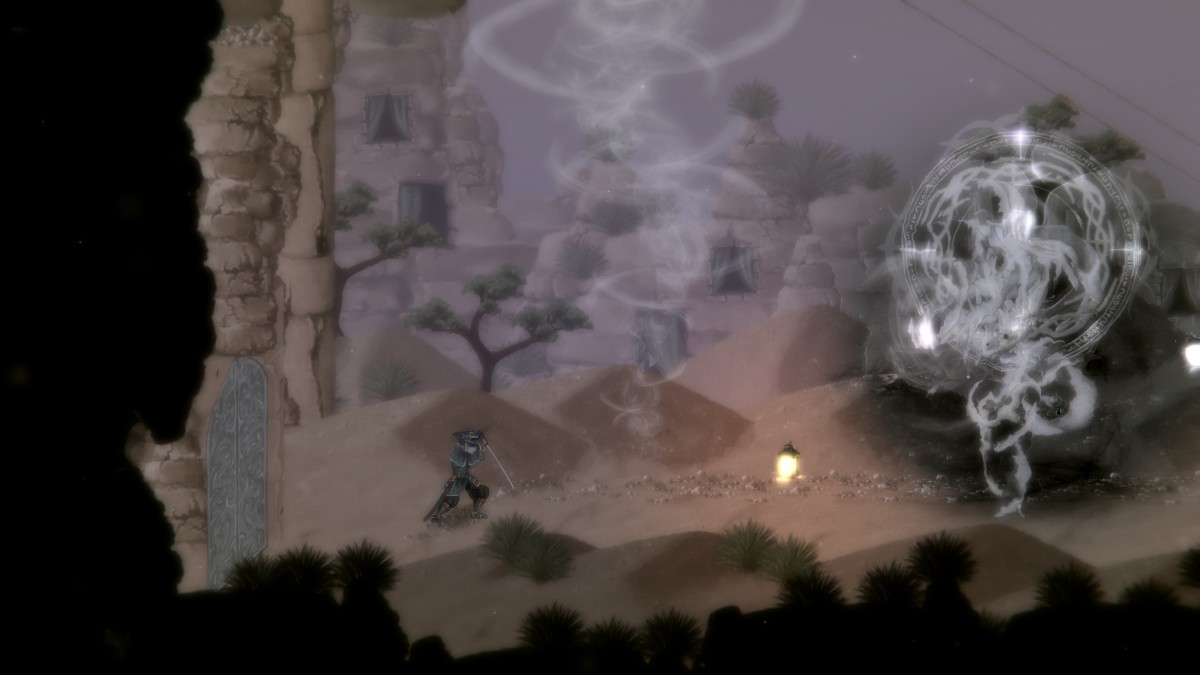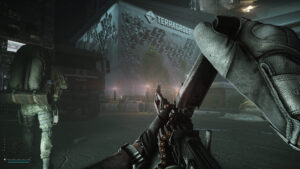
Out of all of the 2D action RPGs that insist on borrowing ideas from popular Soulslike games, Salt and Sacrifice is one of the better offerings. Deep combat, online co-op, a fleshed-out world with plenty of intriguing characters, great bosses, and an appealing art style should make it a worthy addition to the game library of anyone who has been enjoying these sorts of games over the last several years. Granted, this particular concoction of gameplay mechanics and artistic cues brings very few things to the table that you haven’t seen before, and I would even venture say it doesn’t execute what it does do better than the titans of the sub-genre like Hollow Knight, but it does exist neatly in a tier just below those red-hot hits, putting it just above a sizeable chunk of its contemporaries.
With an art style and combat similar to the developers’ previous game Salt and Sanctuary, fans of that game will feel right at home but also treated to a much deeper combat system and more fully-realized web of RPG systems like armor, weapon crafting, enhancements and so on that make Salt and Sacrifice feel like a game that earns the 15 to 20 or so hours it will take you to beat it. Most of the presentation and functionality of your inventory management and hub world activities will feel instantly familiar to most with very logical arrangements of information throughout the game’s menus and on-screen indicators. Combat is similarly intuitive yet with a give and take that of course relies on timing dodges and blocks, memorizing your enemies’ tendencies, as well as the pros and cons of your own weapons.
"With an art style and combat similar to the developers’ previous game Salt and Sanctuary, fans of that game will feel right at home but also treated to a much deeper combat system and more fully-realized web of RPG systems like armor, weapon crafting, enhancements and so on that make Salt and Sacrifice feel like a game that earns the 15 to 20 or so hours it will take you to beat it."
This is of course seasoned with the handful of key tenants that make it Soulslike. This extremely familiar approach to most of what makes up Salt and Sacrifice can make it feel a little conceptually stale in 2022, but it’s largely executed well nonetheless as it reaps more rewards from that decision than it suffers losses. The game’s several levels are large, and meant to be backtracked through as new modes of traversal are learned and the game’s mage hunts have you running all over the place. The enemies are perhaps a bit too similar at times, but they are broken up by the epic mage battles often enough to where it isn’t noticed for long.
With everything being as intuitive as it was, it wasn’t long before I found myself in those recognizable loops of slaying enemies, taking advantage of newly acquired abilities, and comparing recently looted armor, charms and weapons with what was already in my inventory. This along with trips back to the hub world from any checkpoint adds just a drop more flexibility into the formula without necessarily subtracting from the moment-to-moment challenge. Speaking of difficulty, I wouldn’t say Salt and Sacrifice is a particularly hard Soulslike most of the time. It’s certainly more challenging than a non-Soulslike, but as far as these games go, it’s a little more on the welcoming side of the spectrum than average. Enemies are tough and will kill you multiple times, but they telegraph their attacks in a fair way and rarely do you die without having a pretty good idea of what you should be doing differently.
What can present an unfair challenge however is working around the game’s occasional lag and frame-rate drops that I was more than annoyed to encounter in a game so heavily reliant on timing and split-second decisions. These moments didn’t plague my time with it, in fact they were somewhat uncommon, but they did threaten to drag it down quite a bit when I missed an important dodge or a block because the game decided to chug in the very moment I pressed the button. With such short windows of time to dodge in certain boss fights, it can be very costly for a button press to fail to register. I can’t imagine this not getting smoothed over in the near future but it’s still worth a mention.
"I wouldn’t say Salt and Sacrifice is a particularly hard Soulslike most of the time. It’s certainly more challenging than a non-Soulslike, but as far as these games go, it’s a little more on the welcoming side of the spectrum than average."
It’s also worth a mention that these epic battles with the mages were immensely fun and satisfying otherwise. While the designs of the low-level common enemies sort of ran together a bit for me, the bosses are awesome and really effectively show off the personality of this art style. The variety in their attack patterns and general designs makes them the star of the show here. Given that wiping out these entities is heavily tied into the story, if you aren’t fighting one or getting ready to fight one, then you aren’t fully taking advantage of the game.
Traversal is another major spoke in Salt and Sacrifice’s wheel. Outside of wall hopping up narrow vertical tunnels, basic platforming and climbing up ladders, you also have some spots where a special ability is needed like windy updrafts, helpful ziplines, and glistening grapple points. These serve as the gatekeepers to a lot of areas in the game’s massive levels, which is where the backtracking mentality comes in. It’s a shame that using these techniques isn’t as satisfying as it could have been though, as an annoying amount of pin-point accuracy is often needed to do it right and most traversal abilities won’t work until the prompt for them is visible, which makes everything feel more stilted than just being able to use them when your naturally in range to do so. Plus, the animations for some of them, the grappling hook in particular, don’t look quite right. Still, the large levels are well designed with lots of splintering paths to explore and mini-bosses and interesting NPCs hidden pretty evenly throughout.
Salt and Sacrifice’s art direction is perhaps the most familiar part of it all that only lets characters move flatly and at their most basic joints, which doesn’t give different personalities much with which to express themselves. It’s certainly done better here than how a lot of other games handle the style though, as it’s accompanied by a lot of great background detail, multiple independent layers behind and in front of the action, as well as a nicely withered and pale look that gives the whole vibe of the game a desolate, moody character that’s hard to not like. I just wish the animation style was as expanded as the rest of the visuals instead of bottlenecking them with dimensionless movement.
"For veterans of Soulslikes, especially 2D ones, Salt and Sacrifice will fit neatly into your library as yet another largely successful interpretation of the subgenre. Those looking for the next level of challenge, artistic creativity, or gameplay innovation in it will almost certainly be left wanting though, as so much of this game’s DNA has already been explored countless times."
The sound effects and music seem to have been intentionally minimal throughout most of the game. While no sounds feel wrong or out of place, nothing really caught my ear as particularly interesting either. With that, and only the occasional decent piece of music rumbling beneath the more meaningful battles and revelatory moments, there’s not nearly as much to talk about with this game’s sound as I wish there was. Still yet, what’s here certainly serves its purpose.
For veterans of Soulslikes, especially 2D ones, Salt and Sacrifice will fit neatly into your library as yet another largely successful interpretation of the subgenre. Those looking for the next level of challenge, artistic creativity, or gameplay innovation in it will almost certainly be left wanting though, as so much of this game’s DNA has already been explored countless times. Still, while Salt and Sacrifice’s few wrinkles do add to the format, and with how well the boss fights pop off the screen, it’s still a game that has much more to like about it than not.
This game was reviewed on PC.
Creative art direction; Intuitive gameplay; Intriguing lore.
Some technical performance inconsistencies; Repetitive common enemies.


















